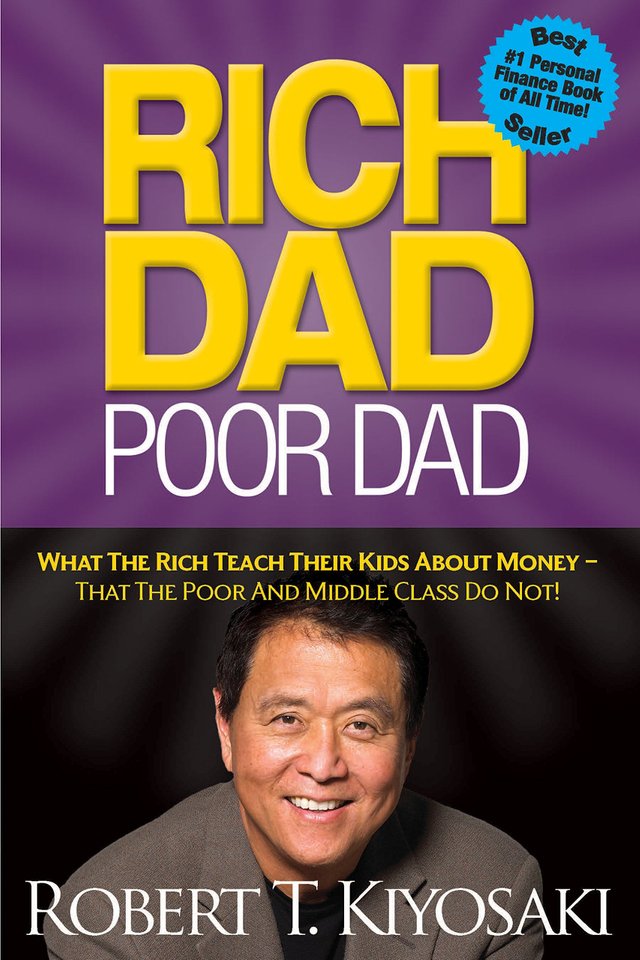Rich Dad Poor Dad

"Rich Dad Poor Dad" by Robert Kiyosaki is a transformative book that challenges conventional thinking about wealth, finances, and the path to financial independence. Published in 1997, it continues to captivate readers worldwide with its insightful lessons and thought-provoking anecdotes. This article explores the key themes and takeaways from the book, shedding light on the importance of mindset, financial literacy, and the pursuit of financial freedom.
. The Dichotomy of Mindsets:
"Rich Dad Poor Dad" introduces readers to the contrasting perspectives of the author's two father figures: his own father, referred to as the "poor dad," and his best friend's father, the "rich dad." Through their divergent beliefs and behaviors, Kiyosaki highlights the fundamental difference in mindset when it comes to money and wealth creation. The book emphasizes the significance of adopting a mindset that sees opportunities where others see obstacles.
. The Power of Financial Education:
One of the central tenets of "Rich Dad Poor Dad" is the importance of financial education. Kiyosaki argues that traditional schooling often neglects teaching essential financial skills, leaving many individuals ill-equipped to navigate the complexities of the financial world. The book encourages readers to actively seek out financial knowledge and develop a deep understanding of concepts like assets, liabilities, cash flow, and investing. It promotes the idea that financial literacy is the key to making informed decisions and building lasting wealth.
. Rethinking the Meaning of Assets and Liabilities:
In "Rich Dad Poor Dad," Kiyosaki challenges the conventional definitions of assets and liabilities. He asserts that an asset is anything that generates income or appreciates in value, while a liability is anything that incurs expenses or depreciates in value. By shifting the perspective on these terms, the book encourages readers to focus on acquiring income-generating assets rather than accumulating liabilities disguised as assets, such as expensive cars or large houses.
. The Importance of Taking Control:
Kiyosaki emphasizes the significance of taking control of one's financial destiny. He encourages readers to become proactive and take responsibility for their financial decisions, rather than relying on others, such as employers or the government, to secure their financial well-being. The book stresses the value of entrepreneurship and investing as means to create wealth and attain financial freedom.
. Building Wealth through Passive Income:
"Rich Dad Poor Dad" introduces the concept of passive income as a crucial component of financial independence. By generating income that is not tied to an individual's active involvement, such as rental properties, investments, or royalties, one can achieve financial freedom and break free from the constraints of traditional employment. The book encourages readers to explore diverse avenues for passive income generation to create a stable and sustainable financial future.
"Rich Dad Poor Dad" continues to resonate with readers across generations, inspiring them to rethink their approach to money, wealth, and financial freedom. By challenging conventional wisdom and providing practical insights, the book serves as a guide for developing a mindset that empowers individuals to take control of their financial destinies. Through its timeless lessons, it encourages readers to pursue financial education, embrace entrepreneurship, and build a foundation of assets that generate passive income.